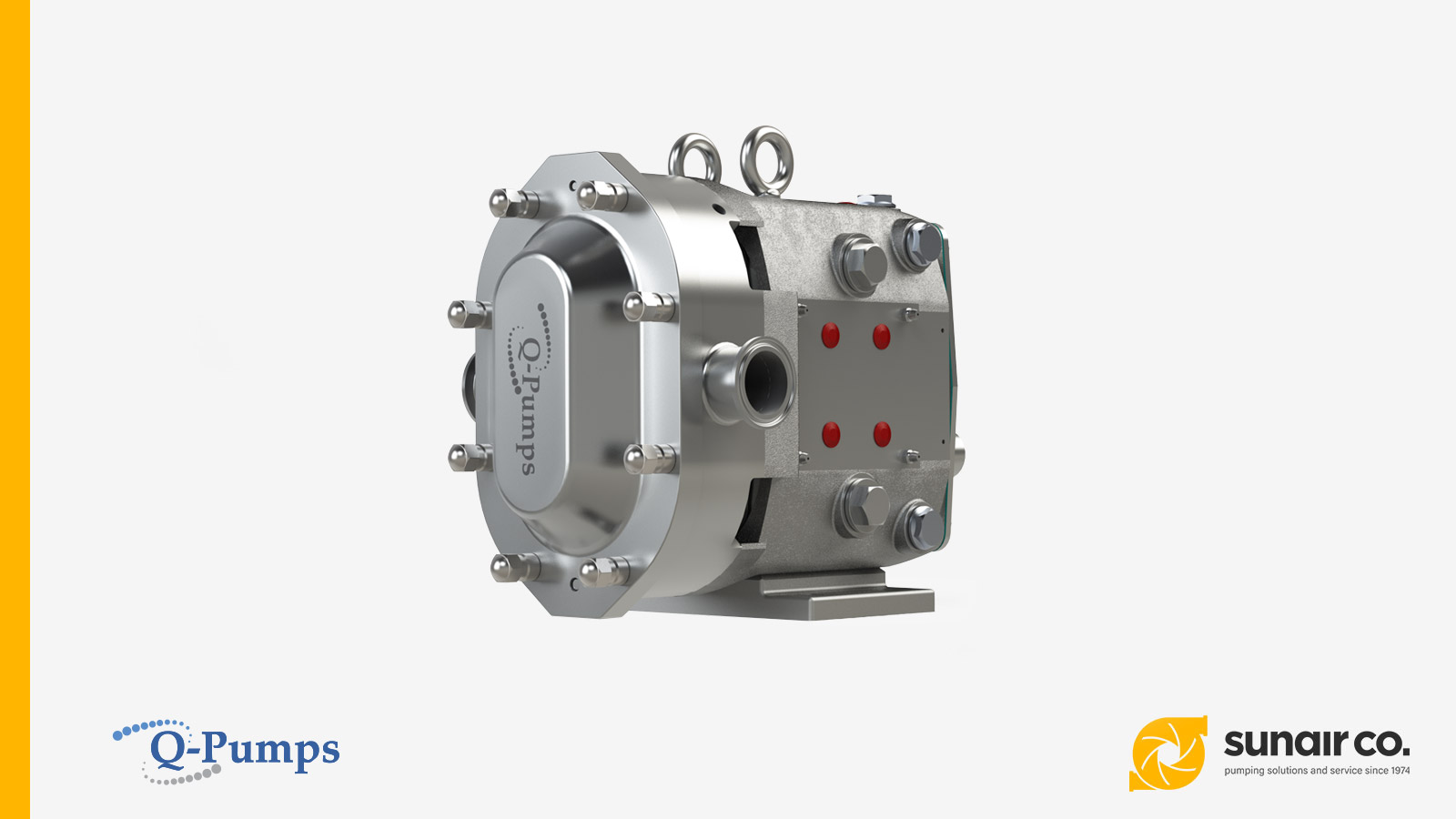
Published April 11, 2023 | 5 minute read

Published April 11, 2023 | 5 minute read
Both rotary lobe pumps and circumferential piston pumps are invaluable for industrial applications requiring the handling and safe transfer of a range of material under different conditions.
Each has their own features and benefits in a variety of circumstances, and identifying the best pumps and pump manufacturers for your operations will ultimately help optimize your operational performance.
Rotary lobe and circumferential piston (CP) pumps are two types of rotary positive displacement pumps that have quite a few similarities.
They both feature counter-rotating shafts with overhung rotors that are synchronized with timing gears. This enables the fluid to enter the pump and split, traveling around the periphery of the rotors before recombining and exiting the pump. There is clearance between the rotors and the casing as well as a separate bearing housing to avoid cross-contamination of bearing and gear lubricant with the product being pumped.
These types of pumps are self-priming and can be used to handle a wide range of viscosities while producing a smooth, gentle, non-pulsating flow that is well-suited to pumping of shear-sensitive fluids.
Rotary lobe pumps and CP pumps are frequently used in many food, beverage, pharmaceutical, chemical, and other industrial manufacturing operations.
The main difference between the two is that CP pumps are better suited for higher pressure applications than lobe pumps due to their larger diameter shafts and tighter clearances. Due to their tighter clearances, CP pumps work better for lower viscosity fluids than lobe pumps and CP pump rotors are typically supplied in non-galling Alloy 88 to avoid galling in the event of contact between rotors or the casing, where as lobe pump rotors are supplied in 304 or 316L SS.
There are a variety of rotor types and sizes available, but the most commonly used rotor is what’s frequently referred to as a bi-wing design. The concave ends of the bi-wing rotor form a well-defined cavity that is ideal for moving solids with minimal damage.
Other rotor geometries are also available, such as tri-lobe, multi-lobe, and single-wing. These variations might be desirable when an application requires more gentle pumping action and less product damage.
You can utilize a customizable drive system such as gearboxes and variable frequency drives to set the speed of the pump’s operations for a precise and consistent flow.
There are a variety of shaft sealing options available, including dual mechanical seals, double and triple lip seals, and single and double O-Ring.
Rotary lobe pumps also feature clean-in-place (CIP) designs, while circumferential piston pumps are primarily only available in Clean-out-of-Place (COP) configurations.
Pumps can sometimes be cart-mounted to be more portable and easily moved around a plant for tank transfer and similar applications.
They are indispensable for gentle, safe, and contamination-free transfer of fluids of varying viscosities and shear sensitivities, as well as those containing fragile solids, thick or heavy pastes, and more. Working with the top rotary lobe pump and CP pump manufacturers is the best way to ensure the quality of your products and your overall operational efficiency.
Using only the most trustworthy brands is paramount to your food and beverage processes, that’s why Sunair Co. carries a range of rotary lobe pumps and other food and beverage pumps and equipment from the most reliable manufacturers in the industry to make sure your operations are always outfitted with the best equipment on the market.
Sunair Co. is proud to work with Q-Pumps, an industry-leading manufacturer of sanitary pumps, including their model QL rotary lobe and QP circumferential piston pump models.
Q-Pumps QL series rotary lobe pumps boast features including:
|
Q-Pumps QP series Circumferential Piston pumps offer:
|
Q-Pumps QL series comes in bi-wing, single-lobe, tri-lobe, and multi-lobe rotor options, as well as an array of different connection types. The QP1 are interchangeable with common brand models from Waukesha, Ampco, Wrightflo and others such as Universal 1, ZP1, and TRA 10, and QP2 are interchangeable with common brand models such as Universal 2, ZP2, and TRA 20.
It is common for rotary lobe and CP pumps to cause an up to 10 to 15 percent product damage rate. For applications requiring drastically lower damage rates, a twin-screw pump such as Q-Pumps model QTS can be a good alternative option.
Read more about QTS twin-screw pumps here.
Getting the highest level of performance from your rotary lobe and circumferential piston pumps also requires reliable mechanical seals and lubricants.
Receive the latest industry news, once a month. Unsubscribe anytime.
To determine the size of a component mechanical seal, measure the inside diameter of the seal face, the length of the spring, and diameter and thickness of the stationary seat.
Read NowDesigned to handle various hydrocarbons in accordance with the high standards of the American Petroleum Institute, API pumps ranging from end suction to vertical turbine models are commonly used in the petroleum, petrochemical, and natural gas industries.
Read NowRegularly inspecting your mechanical seals and monitoring various factors that could contribute to failure or leakage will help extend their lifespan, while ensuring operational efficiency and safety.
Read NowPairing Sunair Co.’s high-quality equipment with the most impactful automation opportunities within the food manufacturing industry—across the packaging, production, sanitation, product tracing, and quality control phases—enables companies to realize significant operational efficiencies and cost savings.
Read NowSunair Co. carries high-quality propane pumps and compressors from leading manufacturers such as Sundyne, Blackmer, and National Pump to ensure your operations perform safely and effectively.
Read Now2475 Wyandotte Road
Willow Grove, PA 19090
Phone: (215) 657-9800
Fax: (215) 657-9881
Email: sunairco@sunair.com
© Copyright 2025 Sunair Co.
Logos on this page are copyrights of their respective companies. The Sunair logo is a registered trademark of Sunair Co.
Leave a comment